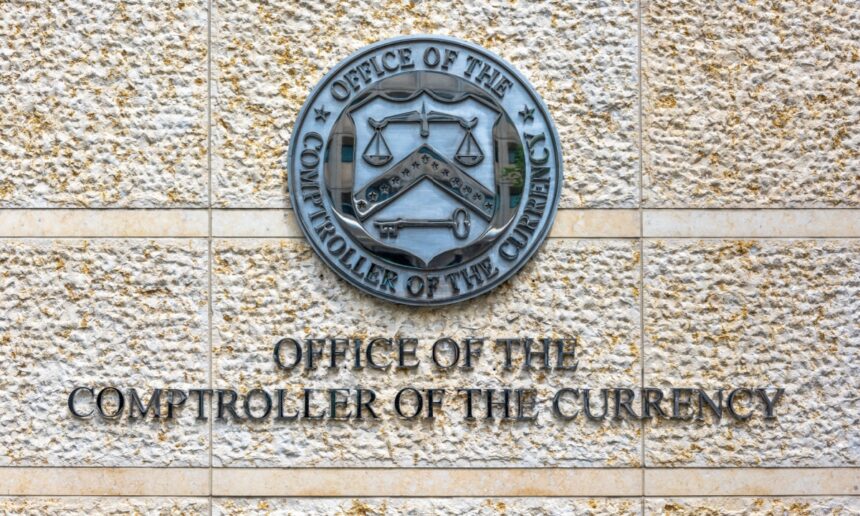The Office of the Comptroller of the Currency (OCC) has taken significant action to address concerns over politicization in the banking sector by releasing two bulletins aimed at promoting fair practices. The agency underscored its commitment to “depoliticize banking” and eliminate what it describes as “unlawful debanking” within the federal banking system.
One of the bulletins, titled “Licensing and Community Reinvestment Act: Consideration of Politicized or Unlawful Debanking,” highlights how the OCC will factor in debanking considerations when evaluating licensing activities and assessing a bank’s Community Reinvestment Act (CRA) rating. This approach is part of a broader initiative to ensure that banks do not discriminate against customers based on their political or religious beliefs.
The second bulletin, “Protecting Consumer Financial Records,” serves as a reminder to financial institutions of their obligations regarding customer financial records and suspicious activity reports. It encourages banks to be vigilant in avoiding practices that could lead to unlawful debanking.
Comptroller of the Currency Jonathan V. Gould emphasized the importance of these measures in a press release, stating, “The OCC is taking steps to end the weaponization of the financial system.” He noted that the agency is dedicated to rooting out any activities by banks that unlawfully debank or discriminate against customers based on political or religious affiliations or lawful business practices.
The OCC’s actions align with a recent executive order issued by President Donald Trump, which aims to ensure fair banking for all Americans. Among the directives outlined in the executive order are requirements for federal banking regulators to remove references to reputational risk that enable unlawful debanking, as well as mandates for reviewing past policies that may have encouraged such practices. Additionally, regulators are tasked with examining supervisory and complaint data for instances of unlawful debanking related to religious beliefs, with the expectation of referring any identified cases to the Attorney General.
In its ongoing efforts to refine its examination practices, the OCC indicated it is reviewing consumer complaint data to enhance its supervisory approach. The agency is also re-evaluating its strategies concerning Bank Secrecy Act and anti-money laundering (BSA/AML) supervision to ensure that these do not inadvertently contribute to unlawful debanking.
Earlier in March, the OCC had declared its intention to cease examining financial institutions for reputational risk, removing such references from its Comptroller’s Handbook and related guidance documents. These steps are part of the OCC’s broader strategy to foster an equitable banking environment free from political bias, ensuring that banking decisions are based solely on objective and risk-based analyses.







